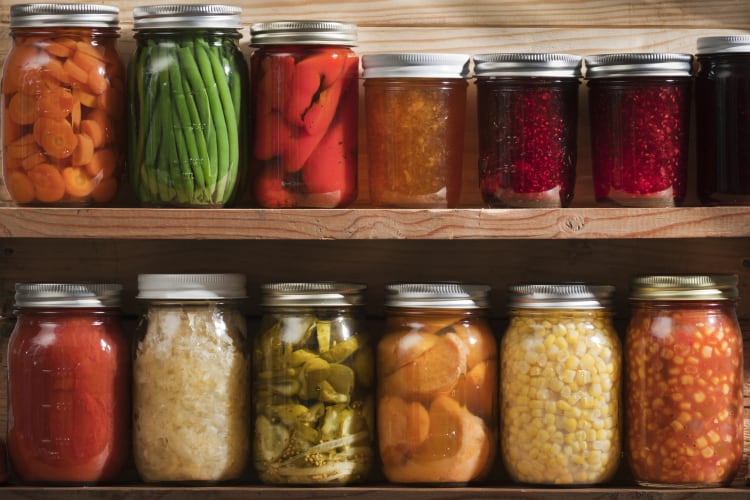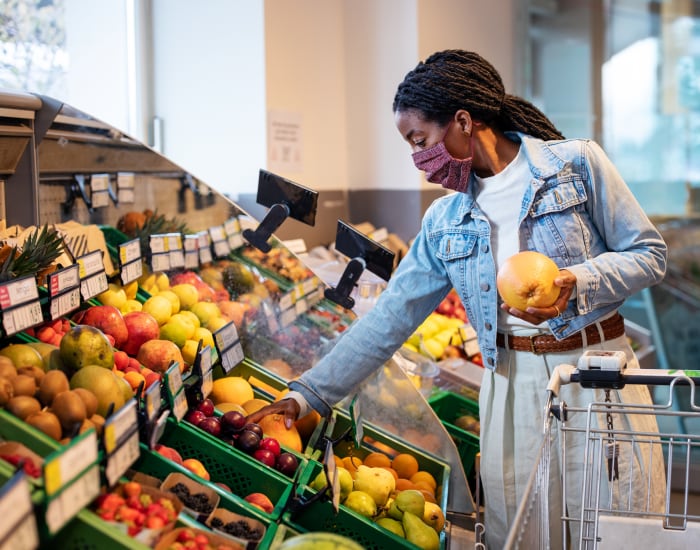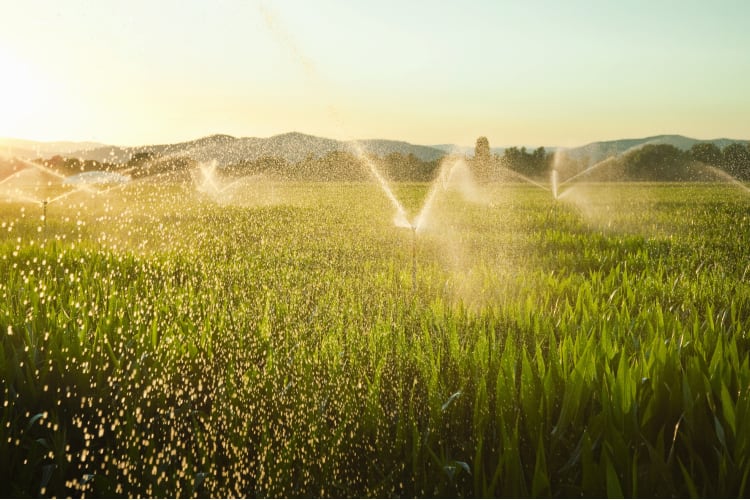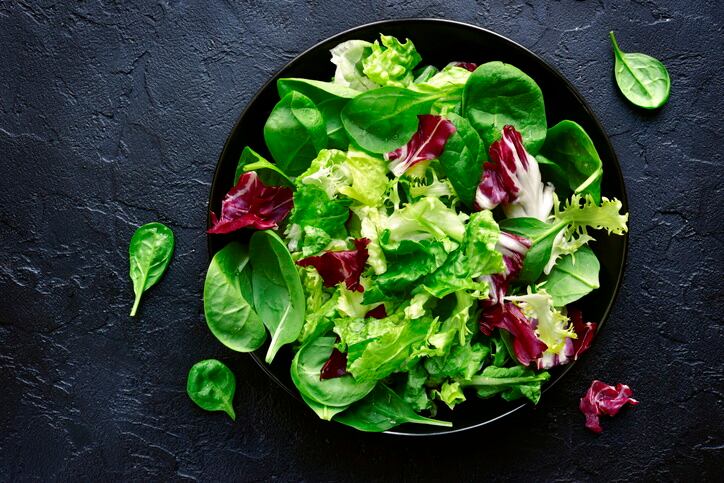Greenyard has indicated it intends to broaden its portfolio of convenient plant-based products as part of a drive to hit €5bn in sales by 2025. The group - which operates fresh, frozen and prepared vegetable divisions - has targeted additional sales of round €650m in the next few years, implying a compound annual growth rate of 5%.
The ambition was detailed when Greenyard unveiled its Strategy 2030 at its Capital Markets event yesterday (7 December). “The Strategy 2030 we announce today is the next big step. We look ahead and will reconnect with growth,” said Marc Zwaaneveld, co-CEO.
Innovation focus: plant-based, convenient and ‘close to crop’
Greenyard indicated it intends to become a ‘plant-based powerhouse’. Pointing to growth forecasts for the fixture, which is expected to reach a value of €150bn by 2030, Greenyard stressed it ‘firmly believes’ there is ‘a lot of additional potential to capture’.
Greenyard described itself as a ‘leader within the transition’ towards plant-based diets and committed to accelerating and broadening its plant-based portfolio, which already consists of more than 1,000 convenient products. Innovation efforts will concentrate on delivering 'healthy' and 'convenient' products in the plant-based space, the company’s co-CEOs revealed during the online investor event.

“In the non-fresh area, we are investing in lines for products that are convenient,” co-chief executive Hein Deprez explained. “Convenience sometimes is not that healthy. What we do as a company is [develop products that are] as close to crop as possible, as non-processed as possible, in our convenience factories.
“For our health and for the planet, close to crop food offerings are the cornerstone of our collective future,” Deprez suggested describing this approach as Greenyard’s ‘DNA’. “We have a unique capability, through our scale and through our integrated relations with customers and growers, to capture a vital part of this fast-growing market. We are plant-based, by nature. It gives us a head-start and a competitive advantage.”
“We are talking about soups, smoothies, bean dishes, protein-rich vegetable dishes,” added Zwaaneveld, suggesting there is an opportunity for vegetable-based items to reach additional consumption occasions throughout the day.
Greenyard will invest a portion of its planned €30-35m CAPEX to further increase capacity for convenience products. Greenyard said the acceleration in innovation and sales will be enabled by a continued step-up in digitalisation efforts. Cash will also be used to invest in Greenyard’s digital ‘Integrated Customer Relationships’ (ICR) model, it was detailed.
Digitalisation to unlock sales opportunity
Investing in ICR will allow Greenyard to respond to ‘current and future consumer needs’ and will ‘directly contribute to a more sustainable food value chain’, the Belgian vegetable processor claimed.
This represents the ‘next step’ in Greenyard’s development, Deprez suggested. “We will step-up our investments in innovation and technology, leveraging the data in the value chain to provide even better products and services to our customers and consumers.”
Greenyard intends to use this approach to deepen its ‘unique’ ICR approach while continuing to build on its grower relationships. “The strength of unparalleled, integrated, and long-term relations at both ends of the food value chain, truly serves as a catalyst for the strategy,” the company noted.

Greenyard’s digital ICR platform facilitates the ‘optimisation’ of the supply chain, allowing Greenyard to expand its service offering, management explained.
“When you can work together in the chain with the retailers, growers and people creating added value in the middle you [generate] a lot of information where you can create the best assortment for the consumer,” elaborated Deprez. “All the information we can gather in this chain will help us to position the retailer with the most optimal price in the store. That is the big factor in the future. You can only do it when you have that platform to work together.”
ICR allows Greenyard to add new layers of services, such as quality control, logistics, packaging, assortment advice, forecasting, and co-creation.
“Collaboration in the chain is critical… It allows Greenyard to continue building sustainable and socially responsible food value chains from front to back. Increased collaboration benefits all parties in the chain, as it creates trust, focus on the long-term, strategic alignment and a balanced supply and demand.”
Raising sustainability standards
The platform also delivers sustainability gains, the group suggested. “The ICR starts with the consumer’s demand to manage the assortment with the customer and program the supply chain. The result is a shorter, more efficient, and more sustainable supply chain – dramatically reducing its environmental footprint.”
On sustainability targets, the company said it is sharpening its ambitions. It aims to cut its carbon footprint by 70% by 2030. By 2025 the group intends to reduce water intensity by an additional 10%, cut waste in its operations by an additional 25%, switch to 100% ‘sustainable packaging’ and ensure 100% ‘social compliance’ throughout its supply chain.
Digitalisation will support Greenyard’s innovation efforts, the company continued. “Already today, a lot of data is available in the chain on quality, taste, transparency, origin, etc. Greenyard has a unique level of knowledge of that data in the chain. Both in terms of automation and additional online services, there are infinite possibilities.”

M&A to open new markets and technologies
Looking at its revenue objectives, the company revealed it may consider M&A opportunities in ‘a very targeted and strict’ way in Europe and – potentially – the USA.
The group stressed that any opportunities would be pursued whilst ‘safeguarding’ a leverage ratio of 2-2.5x. This will create ‘headroom’ to invest in other plant-based product development.
But Zwaaneveld was quick to emphasise that Greenyard will not go after growth for growth’s sake. “What we are looking for is to strengthen our strategy. We are not doing M&A just to grow turnover,” he told attendees during a Q&A session.
This strategy is ‘plant-based and sustainable’ and any acquisition target would either need to fit Greenyard's geographical or market expansion ambitions, or provide it with access to a technology of interest.
"The geographic footprint is really important... so that we can follow retailers who are looking Europe-wide or who are operational all over the world," said Deprez, although management declined to disclose which countries are 'high on the radar'.
“If you want to grab that momentum there are white spots,” Zwaaneveld added. The co-CEO highlighted the potential of new technologies such as coatings to combat spoilage, AI, data management and personalised nutrition. “There are so many things that we can step into.”

